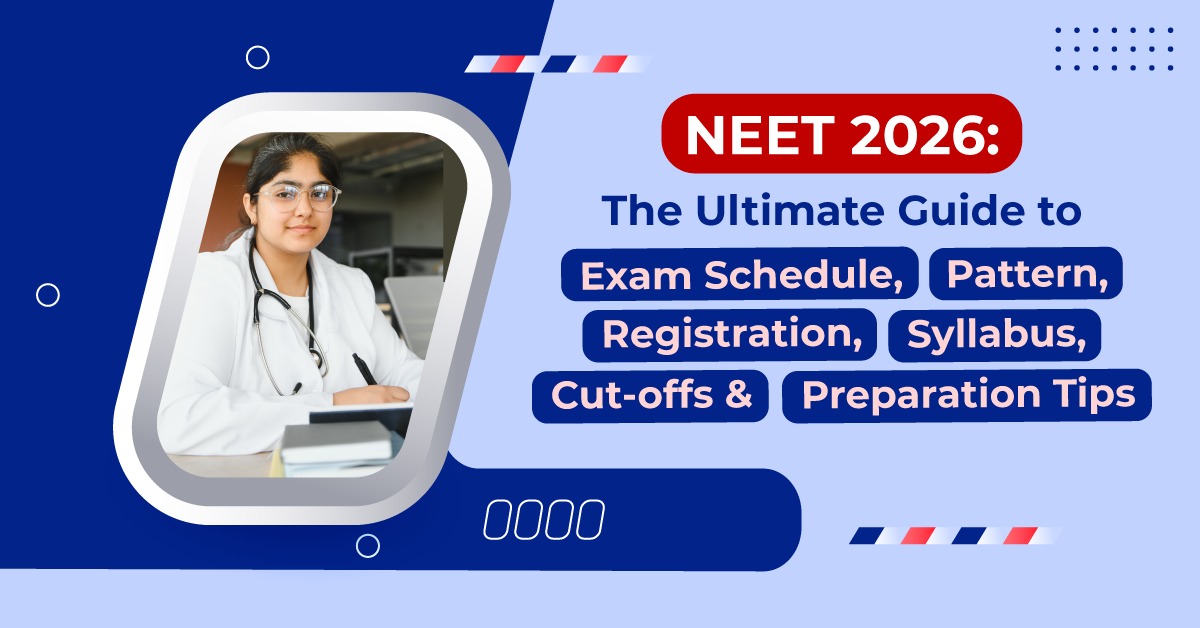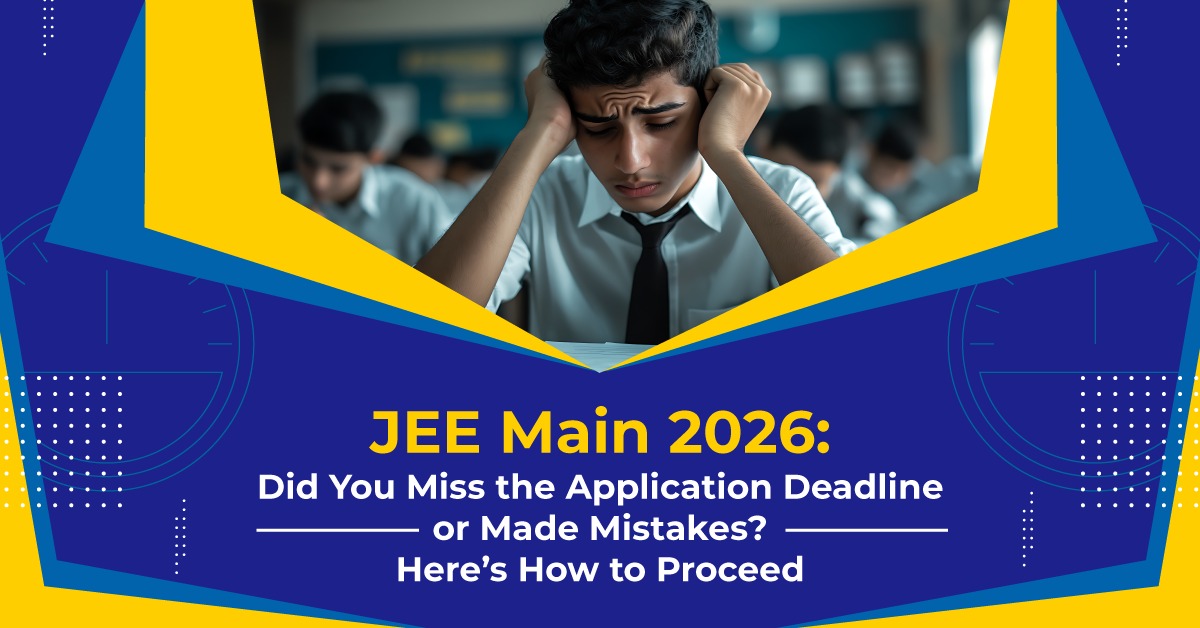
Getting ready for the Joint Entrance Examination (JEE) takes dedication, good planning, and hard work. But each year, many bright students don’t do as well as they could, not because they aren’t smart, but because they make mistakes that could have been avoided when planning how to study. Knowing these common jee preparation mistakes can help you do well. Whether you’re attending JEE coaching or taking online JEE classes, here are certain mistakes to avoid when preparing for the exam. This is important if you want to get into the engineering college you want.
1. Ignoring Foundation Textbooks That Build Basic Concepts
The most fundamental JEE preparation error is underestimating NCERT textbooks. Most aspirants move towards higher study materials without creating a strong foundation. NCERT books are the crux of JEE preparation, particularly for chemistry and some physics topics. These textbooks lay down the basic concepts that complicated problems are based on. Those students who overlook this foundation step tend to find it difficult to solve application-based questions, even after completing a list of reference books.
2. Not Making Full Use of PYQ’s
Many students miss out on great preparation opportunities provided by past papers. JEE Previous year papers tell examination patterns, concepts frequently tested, and levels of difficulty. They give insight into how theoretical concepts are put into practical questions. Students who solve these papers on a regular basis have improved exam temperament and realize their weak points better than students who do not.
3. Having a Messed Up Study Schedule
When it comes to getting ready for the JEE, studying regularly is better than studying hard sometimes. A lot of students mess up by studying super hard for a long time and then barely doing anything for days. This up-and-down method makes it hard to remember stuff, and it can burn you out. No matter if you’re in a JEE class or studying on your own, having a set daily schedule helps you move forward bit by bit and keeps you from freaking out at the last second.
4. Collecting Too Many Study Materials
To try to get fully prepared, students will often gather tons of books, videos, and other study stuff. But this usually just makes things confusing. If you have too much stuff, you won’t get through any of it completely, and you’ll end up stressed out. It’s better to pick a few good resources that you trust and really learn them well than to just skim a bunch of different books.
5. Hesitate to Seek Clarification
Unresolved doubts multiply over the course of time and create big knowledge gaps. Many students hesitate to approach teachers or schools with their questions either due to embarrassment or procrastination. This becomes quite tricky in online JEE classes where interaction requires conscious effort. Successful candidates must look up resolving their doubts through the means of their coaching institutes, study groups, or online forums as soon as the confusion strikes.
6. Skipping Revision Cycles
To understand a concept once doesn’t mean that you apply it for long. One of the most hazardous mistakes made along JEE preparations is treating learning as a one-time thing, without planning to go back and review. The human brain tends naturally to forget with time unless one reinforces it. A systemic revision plan: weekly for fresh topics and monthly for relatively old chapters, helps keep concepts fresh in the memory during the actual examination.
7. Lack of Time Management Strategies
Without proper time management, even the top scorers find themselves with little preparation. Yet many aspirants never strategize on giving time to a subject in lieu of its difficulty and weightage. Some unwisely waste most of the time on subjects they like; others neglect the weaker ones. Time must be spent reciprocally on all areas along with the expected targets for each day, and an assessment to make sure you’re getting good results from the time you put in.
8. Lack of Practice with Mock Tests
The JEE mock test is somewhat a vital part of preparation that most students do not quite capitalize on. These mock tests allow one to build exam stamina, dealing with time under pressure, and realize the gaps in preparation. Students doing a few mock tests face speed and accuracy-related issues during the actual exam, even if they know the concepts well. Full-length mock tests, in strict exam conditions, are an absolute must for the serious aspirant.
9. Disregarding Psychological Preparation
Success in the JEE examination is not guaranteed by mere technical preparation. Most students underrate the psychological stress of sitting for one of India’s highly competitive exams. This lack of preparation results in stress-induced mistakes and below-par performance even after sufficient preparation. Building mental toughness by consistent exposure to exam-like situations, stress management strategies, and realistic expectations is as necessary as problem-solving skill mastery.
10. Compromising Physical and Mental Health
Probably the most underrated aspect of preparation for the JEE is the very concept of well-being. Desperate for scholastic excellence, students sacrifice sleep time, nutrition, and even exercise. Needless to say, this short-sightedness immediately turns into a tragedy as poor health impairs cognition, memory retention, and concentration levels. Healthy preparation needs sufficient sleep, regular workouts, balanced meals, and scheduled breaks to chill.
Conclusion
Cracking the JEE exam isn’t only about hard work; it’s also about being smart and dodging typical mistakes. Spotting and fixing these preparation errors early on will set you up for doing your best. Remember, every topper not only did good things but consciously avoided doing bad ones. Thus, your awareness of one set of pitfalls and unwavering efforts to avoid them, with patient planning, will undoubtedly increase your chances of achieving your engineering dreams.







0 Comments